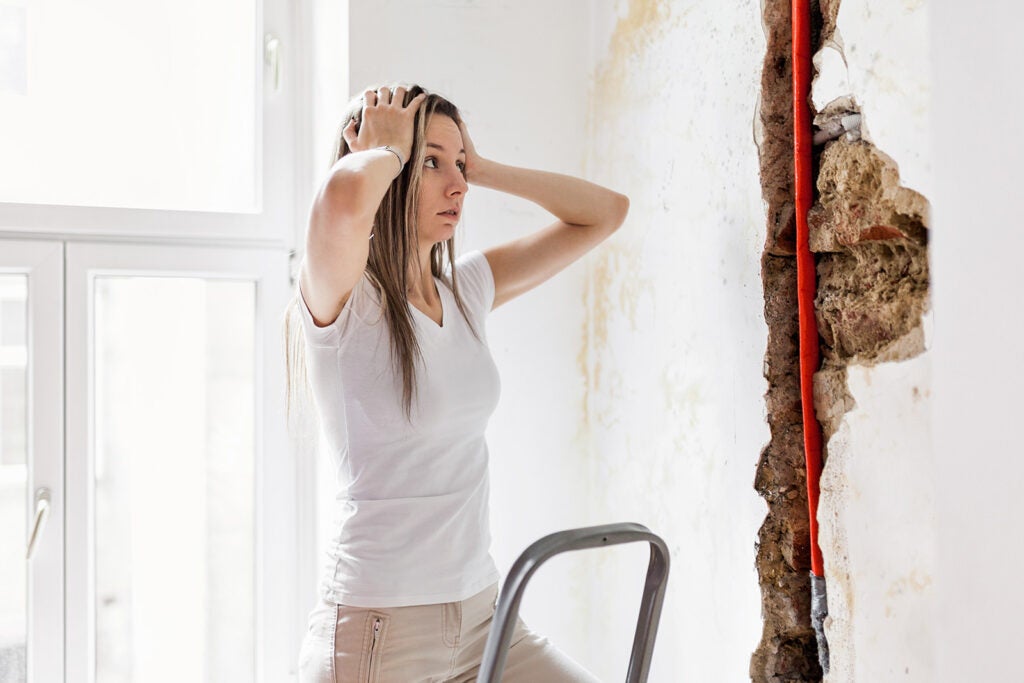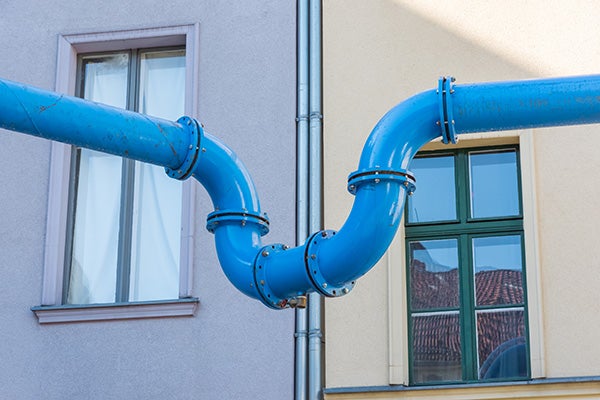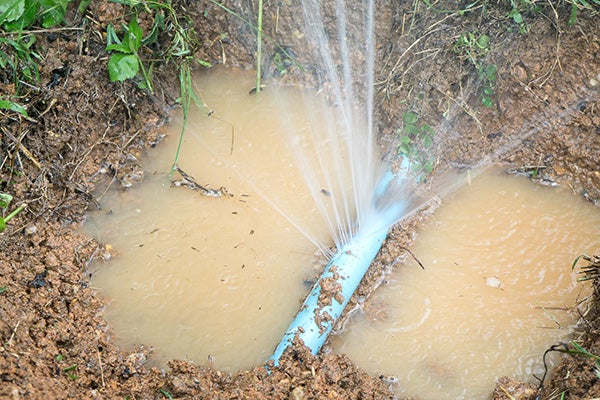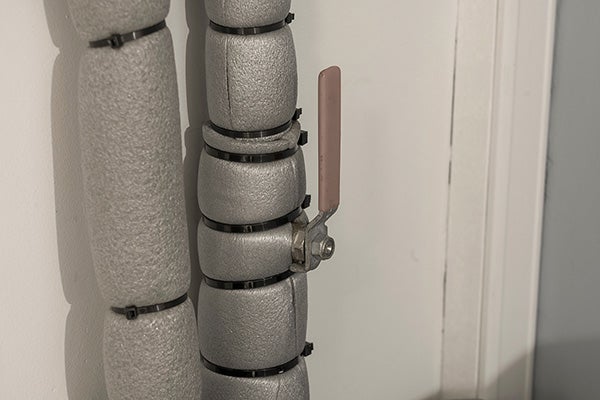Leaks & Burst Pipes

A leaking pipe is not only bothersome, but it may be costing you money too. Find out what to do and who’s responsible for fixing it.

Whose Pipe Is it?
Do you know who is responsible for correcting a problem in your water supply or drains? If not, this guide will come in handy.
Do You Have a Leak?
Here are a few signs that you have a leak:
Noisy pipes
Banging. Whistling. Squealing
Noises resonating through your home are unsettling. Take not – your plumbing system may be warning you of a leak.
Damp areas on the ground
Soggy, wet spots can indicate a leak, so make sure you investigate it immediately to avoid an even bigger expense in the future.
Lush greenery during dry weather
Did you notice that some areas of your lawn are greener than others? This means there is more underground water in there. There could also be organic matter from a cracked drain pipe, serving as a fertilizer for plants.
Your meter reading is unusually high
Either, you’ve been using more water or there’s a problem with your plumbing system. A pinhole-sized leak in a pipe is enough to seriously change how much water you use on a weekly or daily basis.
How to Check For Leaks
Turn off the Tap
Turn off all of your home’s taps and make sure that no water is going into storage tanks.
Read
Read your water meter.
Wait
Turn off the water for 15 to 60 minutes.
Recheck
Reread your water meter.
If your second meter reading is higher than the first, you probably have a leak.
Fixing a leak on your property
Rented Property
Contact your landlord immediately.
Owned Property
As a homeowner, you are responsible for: all of the pipes inside of the property. Toilets, sink drains, and any exterior guttering or pipes connected to the property, the portion of underground pipe that reaches a shared pipe or public sewer.
No Insurance
If you live in a leased home, contact your landlord and tell them about the problem. If you own the property, check whether your plumbing is covered by your homeowner’s insurance or a separate policy. Your insurer will be able to guide you through the process of filing a claim. You’ll need to hire a plumber if your insurance doesn’t cover the problem.


